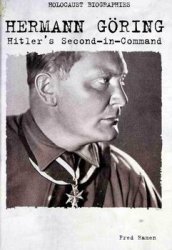In 1837,his last year as president, Jackson distributed hunks of a 1,400-pound cheese, a gift from New York farmers. They thought it the best present the "farming class"could give to someone who so forcefully had represented "their interest."In 1855 historian George Bancroft maintained that Jackson himself embodied America, for he "shared and possessed all the creative ideas of his country and his time."(This sort of nonsense gives nineteenth-century historians a bad name.) By the turn of the twentieth century, progressive historians following Frederick Jackson Turner regarded Jackson as an expression of the democratic ethos of the western frontier. In 1945 Arthur M. Schlesinger Jr.—son of a progressive historian—shifted from a regional interpretation to one based on class:Jackson fought for farmers and workers against big business. Richard Hofstadter (1948) thought otherwise. Jackson had been no friend of the "common man,"Hofstadter wrote, for he had consistently promoted the interests of well-to-do farmers and local entrepreneurs. This point received some confirmation from Edward Pessen's (1969) study of wealth accumulation during the Jacksonian era, which showed that the rich grew richer and the poor, poorer. Robert Remini (1984), on the other hand, argued that Jackson adhered to republican ideals: He was truly a "man of the people."Daniel Walker Howe (2009) disagreed vehemently. The fundamental impulse behind Jacksonian democracy, Howe insisted, was "the extension of white supremacy across the North American continent," especially as reflected in Jackson's removal of the Indians. Whatever the reality, however, many different types of people believed that Jackson represented them. Note that at the public reception, some wore formal attire and others, work clothes. But all got cheese.
Source: George Bancroft, Literary and Historical Miscellanies (1855); Arthur M. Schlesinger, Jr., Age of Jackson (1945); Richard Hofstadter, The American Political Tradition, (1948); Edward Pessen, Jacksonian America (1969); Lee Benson, The Concept of Jacksonian Democracy (1961); Robert Remini, Andrew Jackson and the Course of American Democracy (1984); Daniel Walker Howe, What Hath God Wrought (2009).

Table 9.1 Second American Party System: Democrats and Whigs, 1828-1850s
|
Democrats |
Whigs | |
|
Leaders |
Andrew Jackson, Martin Van Buren, John Calhoun, James Polk |
Henry Clay, Daniel Webster |
|
Key issue |
For:"the common man" |
Against:"King Andrew" (Jackson) |
|
Bank of United States |
Oppose |
Favor |
|
Federal support for internal improvements (roads, canals) |
Oppose |
Favor |
|
Removal of Indians |
Favor |
Oppose |
|
Tariffs |
Favor low |
Favor high |
|
States'rights vs. strong central government |
Endorse states'rights |
Endorse strong federal government |
Approach economic problems from a broadly national perspective also joined in large numbers. Those who found the coarseness and “pushiness” of the Jacksonians offensive were another element in the new party. The anti-intellectual and antiscientific bias of the administration (Jackson rejected proposals for a national university, an observatory, and a scientific and literary institute) drove many ministers, lawyers, doctors, and other well-educated people into the Whig fold.
The philosopher Ralph Waldo Emerson was no doubt thinking of these types when he described the Whigs as “the enterprizing, intelligent, well-meaning & wealthy part of the people,” but Whig arguments also appealed to ordinary voters who were predisposed to favor strong governments that would check the “excesses” of unrestricted individualism.
The Whigs were slow to develop effective party organization. They had too many generals and not enough troops. The issues that defined the Whigs varied from one state to another. For the most part, the sole unifying principle was opposition to Jackson. Furthermore, they stood in conflict with the major trend of the age: the glorification of the common man.
Lacking a dominant leader in 1836, the Whigs relied on “favorite sons,” hoping to throw the presidential election into the House of Representatives. Daniel Webster ran in New England. For the West and South, Hugh Lawson White of Tennessee, a former friend who had broken with Jackson, was counted on to carry the fight. General William Henry Harrison was supposed to win in the Northwest and to draw support everywhere from those who liked to vote for military heroes. This sorry strategy failed; Jackson’s handpicked candidate, Martin Van Buren, won a majority of both the popular and the electoral votes.




 World History
World History









